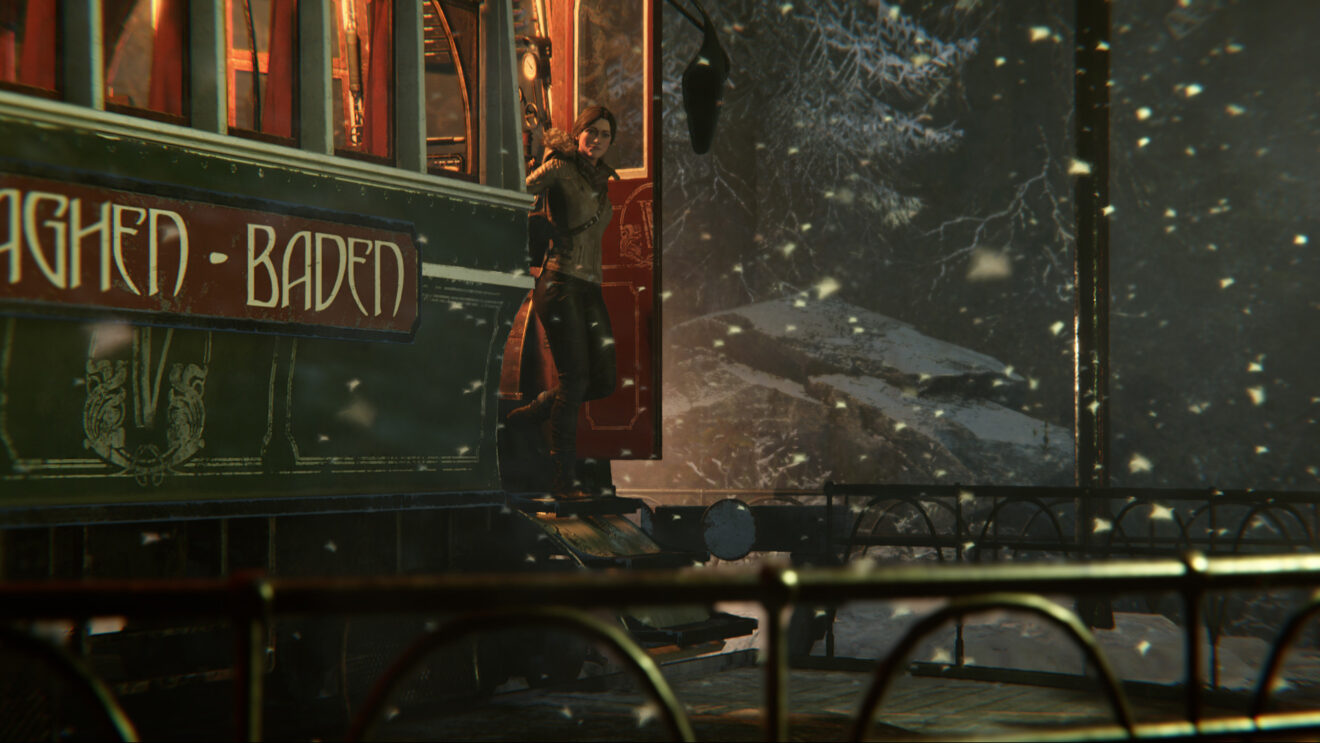
Parting Shots – Syberia: The World Before

Lucas Lagravette
Game: Syberia: The World Before
Occupation: Game Director and Lead Writer, Microids Studio Paris
Career Highlights: Agatha Christie: The ABC Murders, Subject 13
First released just over 20 years ago, Syberia was a graphic adventure game created and designed by late Belgian artist Benoît Sokal. In the years that followed, protagonist Kate Walker would set off on a number of fantastical adventures across an alternate-reality Europe and Russia, acting as a guide for players as they experienced gripping stories, human drama, and countless puzzles. Now, the series and its heroine return in Syberia: The World Before—but this time, Kate is joined by a second main character, Dana Roze. To learn more about the game, we traveled to a cozy cafe at a hidden location in Europe to have coffee with its director and lead writer, Lucas Lagravette.
For those not familiar with the series, can you give us a brief idea of the story and gameplay ideas behind Syberia: The World Before?
Lucas Lagravette: Syberia is a story of emancipation. Our heroine, Kate Walker, decides to give up her once shallow existence as a New York lawyer to pursue a life of adventure and altruism in a fictional Europe conceived by the series creator, Benoît Sokal. Despite its many similarities, the world of Syberia is not our own, and is filled with automatons and fantastical creatures.
I would describe Syberia: The World Before as a “neo point-and-click narrative adventure.” That is, a title that offers you an experience centered on immersion, where your sense of exploration and your astuteness in solving puzzles and enigmas moves the story forward. It’s also one that can be discovered at your own pace, without punishing players for any lack of “skill” with the controller.
With the Syberia series always putting a strong focus on storyline, what were some of the ideas you and the team wanted to tackle in Syberia: The World Before?
LL: First of all, the great emphasis on the psychology of its main characters—starting with Kate Walker, with the continuation of her evolution based perhaps more than before on doubt and introspection. Then, to play on temporalities. Syberia: The World Before introduces a new playable character, Dana Roze, capturing specific moments in her life during the historical events of the 20th century in this fantasy world that so closely resembles our own. We use this alternation between eras both for storytelling and gameplay purposes—events in Dana’s past sometimes allow us to progress what’s happening in the present with Kate.
Of course, Syberia: The World Before isn’t just about story. What did the team do to enhance and improve its gameplay beyond the previous chapters?
LL: In order to make the game both fully playable with a single mouse on PC and a controller on consoles, we had to design [not only] each level, but also each game system, almost twice. We then took each “brick” of the game—the puzzles, the dialogue system, the movements, the inventory, etc.—and sought to modernize them to current standards without ever compromising their specific charms. This was a delicate balancing act, which also had to take into account the constant alternation between two eras and two characters, as well as our fierce desire to include an optional help system that was as complete as possible without ever breaking the narrative.
WGC: If you could enter the world of Syberia: The World Before as a new NPC to help either Kate or Dana in their journey, would you?
LL: Given some of the tragic events in her life, the immediate temptation would be to become an NPC from Dana’s time and seek to warn her. But I’m sure that would turn out like those nightmares we sometimes have, where what we’re trying to avoid at all costs ends up happening anyway.
The real answer, I think, would be to give up the somewhat paternalistic temptation to “guide” Kate and Dana. We are trying to build them as characters who are constantly realizing their own strength and seeking more independence. The best thing to do is to let them be the masters of their own destiny and actions—contrary to what many people they meet try to make them believe, they make the right decisions!
